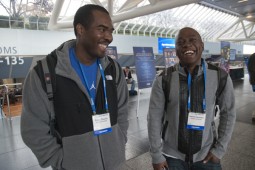
Feature #1: (start time: 06:03) On January 12, 2010, just over three years ago, a magnitude 7 earthquake shook Haiti, taking more than 200,000 lives and displacing an estimated 2 million. Still today, the International Organization for Migration estimates hundreds of thousands of people are without permanent homes, and in many ways Haiti seems no closer to rebuilding than it did three years ago. Co-host Beth Bartel speaks to Haiti’s first seismologists — Roby Douilly and Steeve Symithe, both graduate students at Purdue University — about the future of Haiti and a career in seismology there
 Feature #2: (start time: 15:42) You’ve probably heard by now that 2012 was the warmest ever in the U.S. We’re not the only ones overheating. At the bottom of the world, over the last 50 years, West Antarctica has warmed more than scientists had thought. The implications are huge; an enormous ice sheet there may be at risk of long-term collapse, which could cause sea levels to rise alarmingly. Co-host Susan Moran speaks with Andrew Monaghan, a climate scientist at the National Center for Atmospheric Research, or NCAR, here in Boulder. Dr. Monaghan co-authored the study, which was recently published in the journal Nature Geoscience.
Feature #2: (start time: 15:42) You’ve probably heard by now that 2012 was the warmest ever in the U.S. We’re not the only ones overheating. At the bottom of the world, over the last 50 years, West Antarctica has warmed more than scientists had thought. The implications are huge; an enormous ice sheet there may be at risk of long-term collapse, which could cause sea levels to rise alarmingly. Co-host Susan Moran speaks with Andrew Monaghan, a climate scientist at the National Center for Atmospheric Research, or NCAR, here in Boulder. Dr. Monaghan co-authored the study, which was recently published in the journal Nature Geoscience.
Hosts: Susan Moran and Beth Bartel
Producer: Susan Moran
Engineer: Jim Pullen
Executive Producer: Shelley Schlender
Podcast: Play in new window | Download (Duration: 24:31 — 22.5MB)
Subscribe: RSS

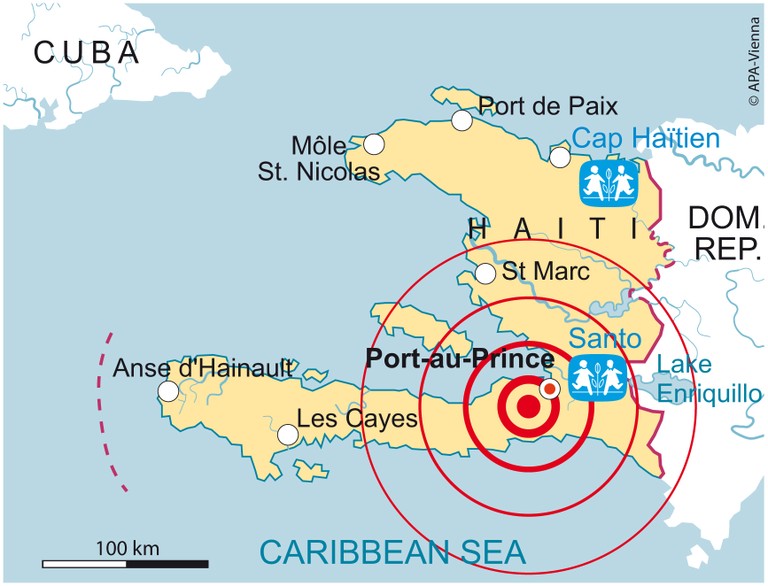



 Feature #1: Neanderthals (start time: 6:01)
Feature #1: Neanderthals (start time: 6:01)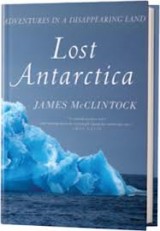 Antarctica: Adventures in a Disappearing
Antarctica: Adventures in a Disappearing 
 Bell Labs thrived from the 1920s to the 1980s, when it was most innovative and productive institution of the twentieth century. Long before America’s brightest scientific minds began migrating west to Silicon Valley, they flocked to the Bell Labs campus in the New Jersey suburbs. At its peak, Bell Labs employed nearly fifteen thousand people, twelve hundred had PhDs. Thirteen eventually won Nobel prizes. How did they do it? How can we learn from their successes, so we can do it here in Colorado? New Your Times journalist
Bell Labs thrived from the 1920s to the 1980s, when it was most innovative and productive institution of the twentieth century. Long before America’s brightest scientific minds began migrating west to Silicon Valley, they flocked to the Bell Labs campus in the New Jersey suburbs. At its peak, Bell Labs employed nearly fifteen thousand people, twelve hundred had PhDs. Thirteen eventually won Nobel prizes. How did they do it? How can we learn from their successes, so we can do it here in Colorado? New Your Times journalist 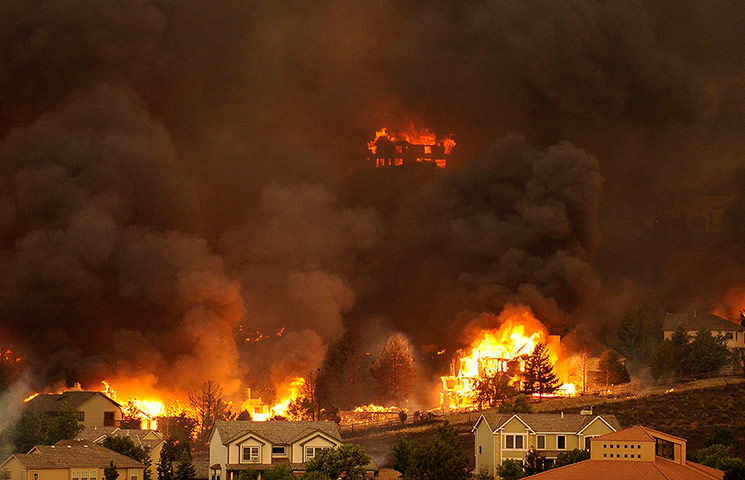
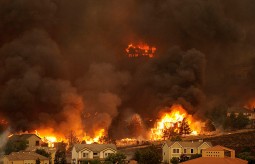 With record high temperatures along with record low snowpack, the Colorado Front Range has been ravaged by increasingly expensive wildfires. For today’s show, How on Earth brings in two fire experts for a panel discussion.
With record high temperatures along with record low snowpack, the Colorado Front Range has been ravaged by increasingly expensive wildfires. For today’s show, How on Earth brings in two fire experts for a panel discussion. 
 nicotine patches really help you stop smoking? Shelley Schlender interviews a scientist who says they don’t.
nicotine patches really help you stop smoking? Shelley Schlender interviews a scientist who says they don’t. 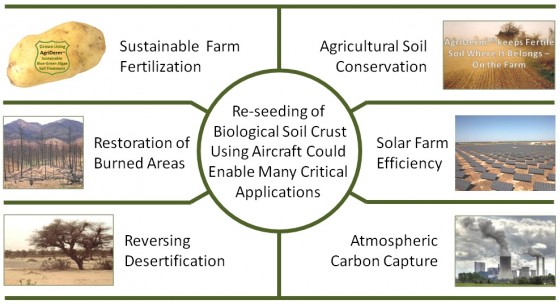
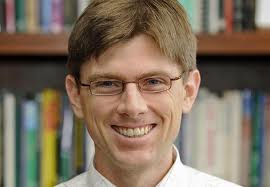
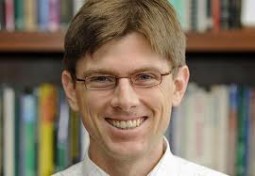 In last month’s election, Boulder voters gave the go-ahead for the city to move forward on municipalizing the electrical utility. The chief motivation for that decision was to put more renewable energy on the grid. There are a large number of policy options to incentivize renewable energy – so many that it’s hard to keep them all straight.
In last month’s election, Boulder voters gave the go-ahead for the city to move forward on municipalizing the electrical utility. The chief motivation for that decision was to put more renewable energy on the grid. There are a large number of policy options to incentivize renewable energy – so many that it’s hard to keep them all straight.  Mountainous areas like the Rockies are hotspots for plant and animal biodiversity but as the climate warms many of these species – including Colorado’s iconic pica — are under threat. Much research has focused on the effects of temperature change, but less has focused on the interactions of temperature and precipitation in a changing climate. University of Colorado biologist
Mountainous areas like the Rockies are hotspots for plant and animal biodiversity but as the climate warms many of these species – including Colorado’s iconic pica — are under threat. Much research has focused on the effects of temperature change, but less has focused on the interactions of temperature and precipitation in a changing climate. University of Colorado biologist 

 elley Schlender visited with Colorado State University Scientist and Paleolithic Lifestyle expert
elley Schlender visited with Colorado State University Scientist and Paleolithic Lifestyle expert 
 Susan Moran has a telephone interview with
Susan Moran has a telephone interview with 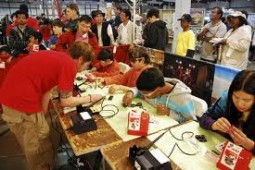 Jeff Branson of the
Jeff Branson of the 
 Tom McKinnon and
Tom McKinnon and  Shelley Schlender interviews
Shelley Schlender interviews 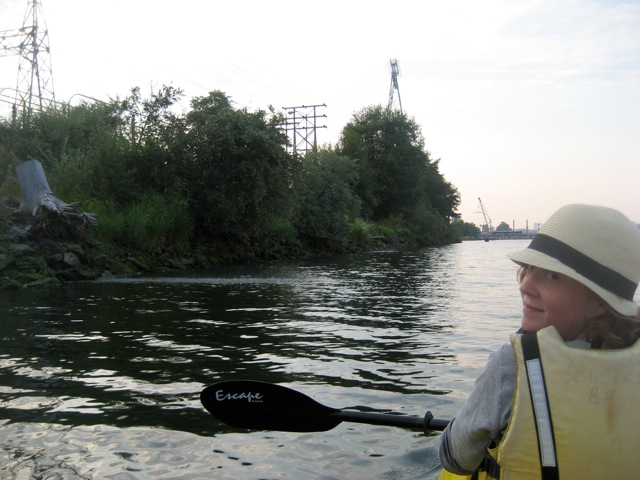
 Nature means something different to everyone. It’s a towering old-growth redwood forest to some. Deep silent canyons to others. And urban community gardens to others. Defining what is “pristine nature” is even more dicey. Just ask conservation biologists trying to figure out the best ways to preserve ecosystems and their flora and fauna.
Nature means something different to everyone. It’s a towering old-growth redwood forest to some. Deep silent canyons to others. And urban community gardens to others. Defining what is “pristine nature” is even more dicey. Just ask conservation biologists trying to figure out the best ways to preserve ecosystems and their flora and fauna. Tom McKinnon interviews Jeff Bisberg of
Tom McKinnon interviews Jeff Bisberg of